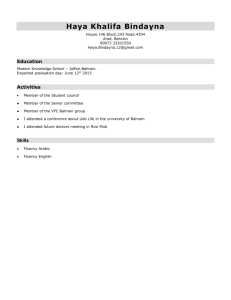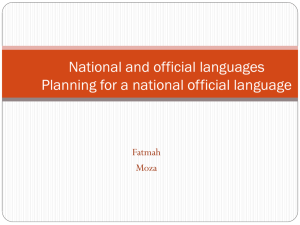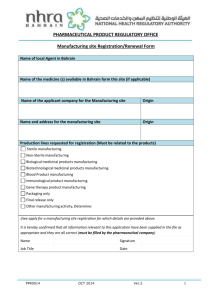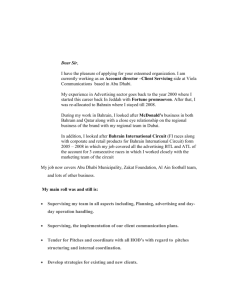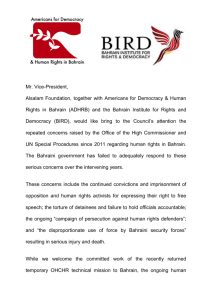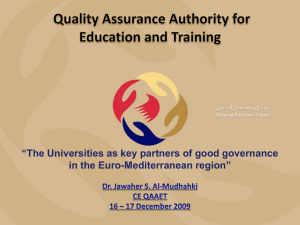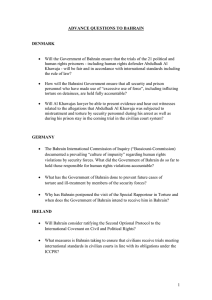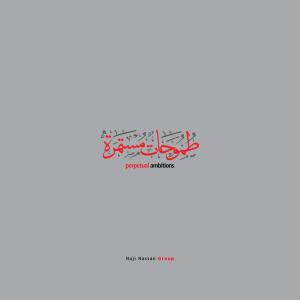Formula
advertisement
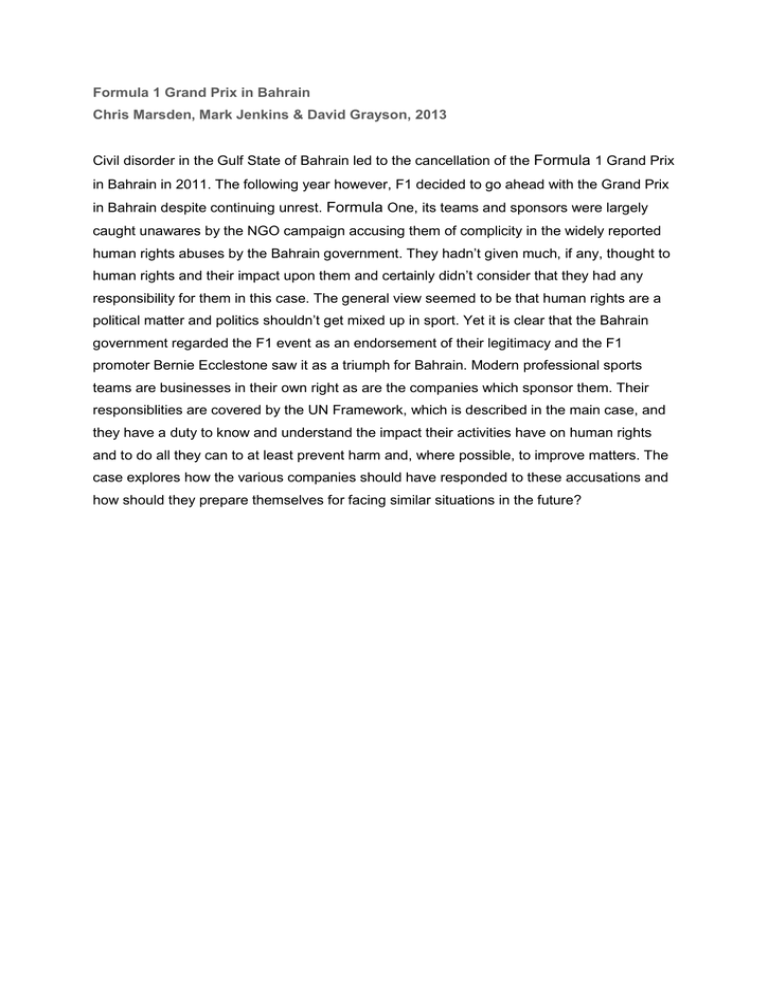
Formula 1 Grand Prix in Bahrain Chris Marsden, Mark Jenkins & David Grayson, 2013 Civil disorder in the Gulf State of Bahrain led to the cancellation of the Formula 1 Grand Prix in Bahrain in 2011. The following year however, F1 decided to go ahead with the Grand Prix in Bahrain despite continuing unrest. Formula One, its teams and sponsors were largely caught unawares by the NGO campaign accusing them of complicity in the widely reported human rights abuses by the Bahrain government. They hadn’t given much, if any, thought to human rights and their impact upon them and certainly didn’t consider that they had any responsibility for them in this case. The general view seemed to be that human rights are a political matter and politics shouldn’t get mixed up in sport. Yet it is clear that the Bahrain government regarded the F1 event as an endorsement of their legitimacy and the F1 promoter Bernie Ecclestone saw it as a triumph for Bahrain. Modern professional sports teams are businesses in their own right as are the companies which sponsor them. Their responsiblities are covered by the UN Framework, which is described in the main case, and they have a duty to know and understand the impact their activities have on human rights and to do all they can to at least prevent harm and, where possible, to improve matters. The case explores how the various companies should have responded to these accusations and how should they prepare themselves for facing similar situations in the future?
